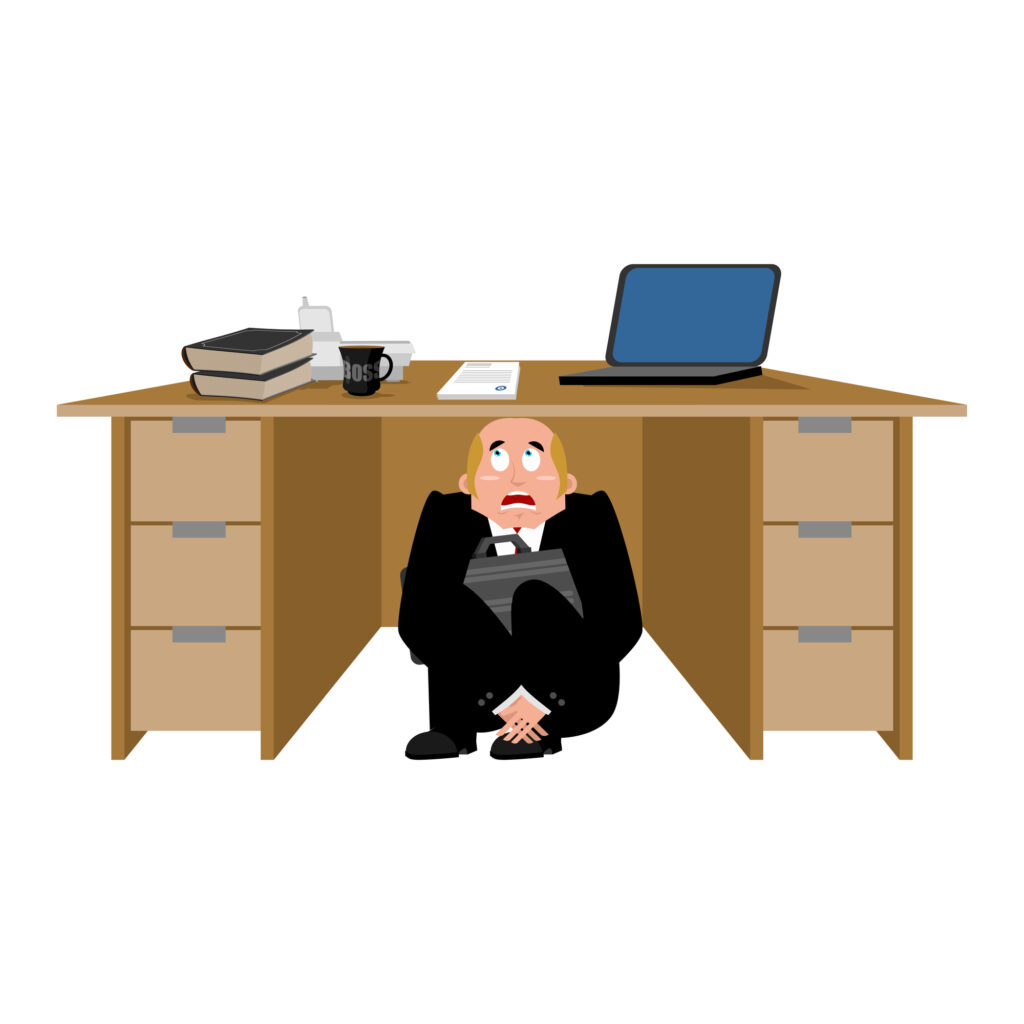 Halloween has become a national obsession, with all things spooky, creepy, and ominous, as well as all things pumpkin. And for many small businesses, it’s good for their bottom line, with Halloween spending in the U.S. is expected to reach $11.6 billion this year. Nonetheless, when thinking scary thoughts about this holiday, you might consider really scary events that could adversely affect your business. Here’s a list of 10 terrible things that can so easily happen to just about any business, and what you can do to prepare. This list is based on a prior blog.
Halloween has become a national obsession, with all things spooky, creepy, and ominous, as well as all things pumpkin. And for many small businesses, it’s good for their bottom line, with Halloween spending in the U.S. is expected to reach $11.6 billion this year. Nonetheless, when thinking scary thoughts about this holiday, you might consider really scary events that could adversely affect your business. Here’s a list of 10 terrible things that can so easily happen to just about any business, and what you can do to prepare. This list is based on a prior blog.
- A natural disaster. It can temporarily, or even permanently, put you out of business. (I just got through Hurricane Milton.) And even if such an event doesn’t happen to you, it can befall your vendors, disrupting your supply chain. Do you have a disaster recovery plan? Do you have adequate insurance to weather the storm (pun intended)?
- A recession. The economy continually cycles, but there are periods when things look very dark. While a recession is considered unlikely at this time, it can never be ruled out. Are you prepared to get through a down cycle? Do you have a financial backstop to help you with this?
- A lawsuit. These are all too common for small businesses. For example, according to Yahoo Finance!, 40% of small businesses were hit last year with lawsuits by their employees. If you are sued, immediately notify your insurer and determine whether to use the insurance company’s attorney as your representation or to find your own attorney. If you experience a problem, determine whether to bring a lawsuit (do a cost/benefit analysis). And of course, try to prevent lawsuits by using contracts, complying with the law, and working for reconciliation when potential problems emerge so they don’t ripen into lawsuits.
- Losing key employees. While the job market has tightened up a bit, employees are still jumping ship for better wages, bigger benefits, and greater opportunity. It’s challenging for small companies to compete in the workplace with multinationals. Make sure you continually review your compensation packages. Learn from employees what they want most; it may be flexible hours that don’t cost you a penny more. Employees want to feel like they’re making a difference, so reexamine your company’s mission and the activities supporting it.
- Unfair competition. Your biggest competitor may engage in deceptive or wrongful business practices that cause economic injury to your company. These practices may include trademark infringement, business defamation, or misappropriation (stealing) your trade secrets. These things happen, for example, when an employee of yours becomes your competitor’s employee, along with your price list and other information the knowledge of which can harm you. Be sure employees sign nondisclosure agreements to protect trade secrets, and be vigilant to spot quickly any unfair competition so you can take action immediately to stem the damage.
- Scandal. Even at a small company, scandals can happen. I was shocked to learn in my local paper that the owner of a business I dealt with for years was arrested for child pornography. OK, this probably won’t happen to you, but your company can experience bad publicity; social media is quick to reveal a rude employee or a bad customer experience. Be ready to respond to scandal with an appropriate response (e.g., changing company policy, using public relations).
- New laws and regulations. A commercial fisherman I know was knocked for a loop when the number of fish he was permitted to catch was slashed dramatically. A change in a federal, state, or local rule can knock you for a loop. Be vigilant about new rules; you may want to express concerns before they’re adopted, or if adopted, learn how they impact you and what you can do about them.
- Your disability or death. What happens to your business when something happens to you? Do you have people to run your business if you’re incapacitated? Do you have a succession plan in place? Do you have a financial backstop to help you, your family, and your business (e.g., disability insurance; life insurance)?
- The unknown. Donald Rumsfeld said “There are known knowns. These are things we know that we know. There are known unknowns. That is to say, there are things that we know we don’t know. But there are also unknown unknowns. These are things we don’t know we don’t know.” This can be scary. You probably can learn what you know you don’t know, but it’s hard to learn something you don’t know you don’t know. The best course of action is for a business owner to be surrounded by a team of experts in many fields (law, accounting, IT, marketing).
- Failure. Perhaps the greatest fear of small business owners is that they won’t succeed. One source found that 59% of them has a fear of failing. What to do about this fear? Recognize it’s common and learn from the mistakes of others to the extent possible. My book, Smooth Failing, covers just these things.
Final thought
“There are three things that I’ve learned never to discuss with people: religion, politics and the Great Pumpkin.” — Linus, “It’s the Great Pumpkin, Charlie Brown”
But it’s okay to discuss these 10 scary things. Think about them and prepare.
For more information concerning disaster preparedness, see this list of blogs.


